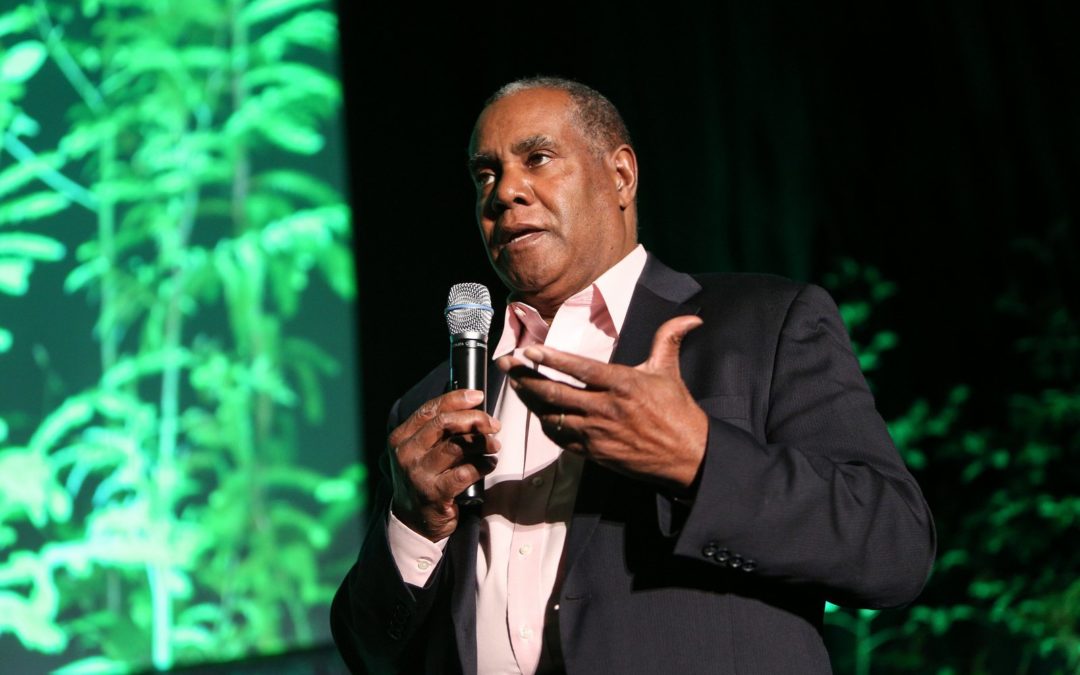
by Diana Louise Carter | Thursday, May 11, 2017 | Greentopia, Leadership Series
You probably know that mellifluous voice, the one that makes it seem that no matter how grim things are for the environment, there’s still hope. Steve Curwood, host and executive producer of Public Radio International’s Living on Earth show brings his voice to Rochester Tuesday, May 16, for Greentopia’s Leadership Series. Curwood’s talk is titled “Social Equity and Climate Resilience in the Green Redevelopment of Rochester.” Rochester City Mayor Lovely Warren will also offer remarks.
Reservations are required for the breakfast lecture in our Greentopia Leadership Series. Donations of $10 are suggested to cover costs of the continental breakfast. Click here to make a reservation. Doors at the Rochester Museum & Science Center’s Eisenhardt Auditorium, 657 East Ave., open at 7:30 am and the program begins at 8.
Curwood’s show is heard on some 300 radio stations around the country, including Rochester’s WXXI-AM, where it’s broadcast Sundays at 4 pm. A Pulitzer-Prize-winning journalist, Curwood has hosted the environmental news show since April 1991. The series is sponsored by RG&E/Avangrid, with media sponsor WXXI.
Next in the series will be Mark W. Johnson of Civitas Landscape Architects, a thought leader in natural spaces in urban settings, who will talk about urban waterfront development on Sept. 11 at Oak Hill Country Club.
by Diana Louise Carter | Friday, October 9, 2015 | EcoDistrict, Environment, Greentopia, Leadership Series
As a travel writer for publications such as National Geographic, Taras Grescoe travels around the world. But he doesn’t own a car. In fact, the Montreal resident says 90 percent of his transit is by foot, bicycle or subway. His keen observations while moving around cities from Moscow to Bogota led to his 2012 book, Straphanger: Saving Our Cities and Ourselves from the Automobile.
Grescoe will be the mid-day keynote speaker at Greentopia’s Futures Summit Oct. 21 at Monroe Community College. While he sometimes uses a car-sharing service in Montreal, he says exercising individual rights by driving cars “is diminishing the commons for everybody.” Personal automobiles hog urban space and make moving around harder for others, he claims, adding that nearly one-third of urban residents don’t or can’t drive a car.
“The biggest obstacle is the presumption that every citizen has access to a car,” Grescoe told a transportation conference in Portland, OR two years ago. “Transit is about mobility, not trains or buses,” he said. Some examples include moving ramps in hilly cities in South America that turn an arduous, 30-minute walk uphill into a five-minute ride. Or the “Mom bike” in Japan, an inexpensive bicycle that allows a parent to peddle along with two children. Or the “cargo bike” in Denmark, where an adult can carry a week’s worth of groceries or up to three children.
Bigger modes of transportation, such as subways or light rail, work best when they’re not competing for space with cars and when they’re speedy and well connected, Grescoe said. He suggests cities go for low-hanging transit fruit by providing services in the more densely populated parts of a city that were perhaps designed for pedestrian traffic before automobiles became ubiquitous in the American landscape.

